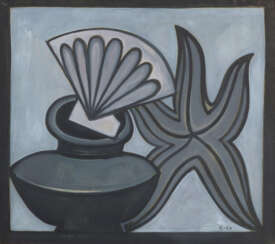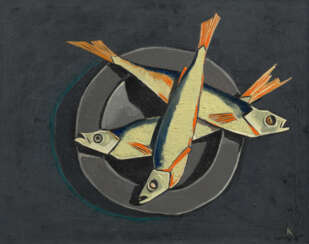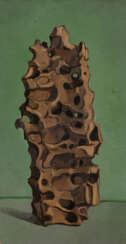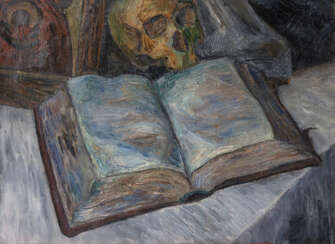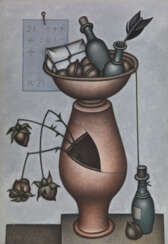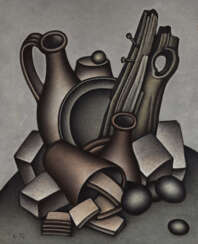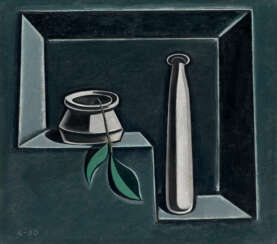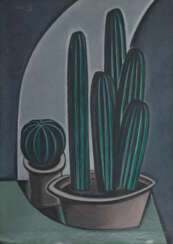Dmitry Mikhailovich Krasnopevtsev (1925 - 1995) — Auction price
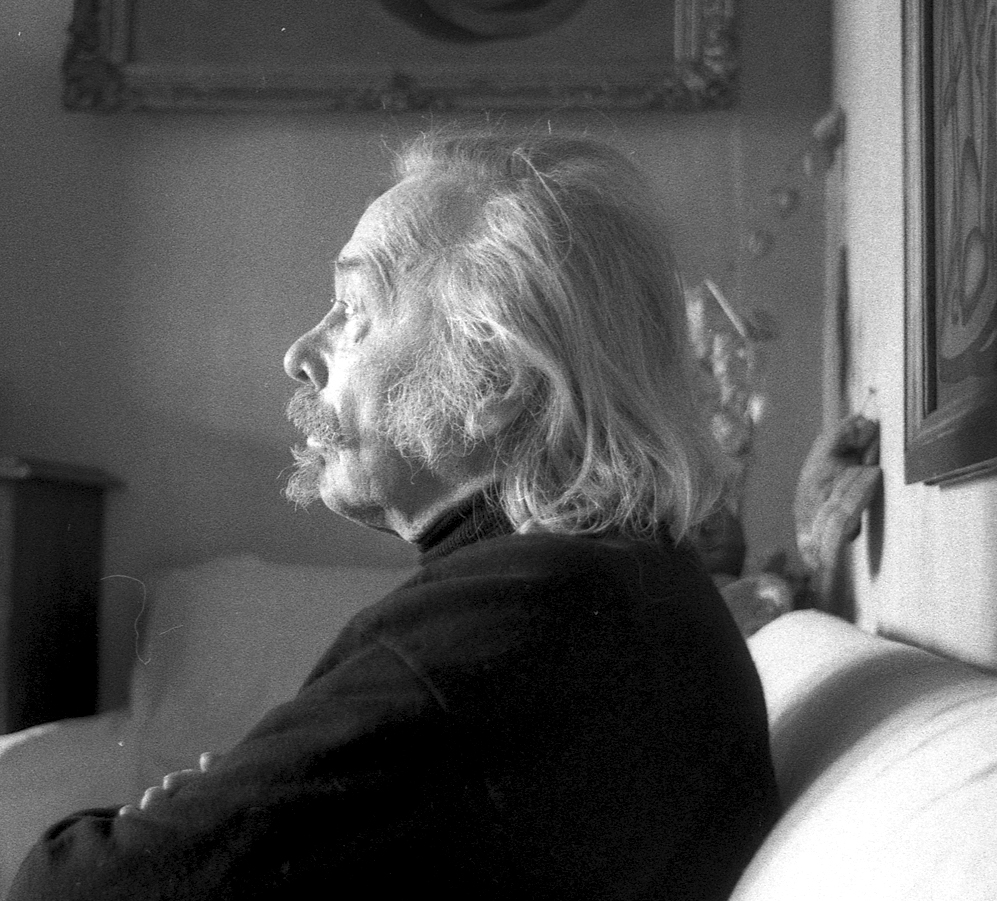
Dmitry Mikhailovich Krasnopevtsev (Russian: Дмитрий Михайлович Краснопевцев) was a Soviet and Russian artist of the second half of the twentieth century. He is known as a painter and graphic artist, a representative of "unofficial art" and the so-called Second Russian avant-garde.
Dmitry Krasnopevtsev chose as his main genre "metaphysical still lifes" approaching surrealism, often depicting ceramics, dried plants and shells in melancholy colors. These works developed Baroque motifs of the frailty and unreality of the world. Although for a long time his works were little exhibited in his homeland, they found admirers in other countries such as Austria, Germany, France, Japan, and the United States.
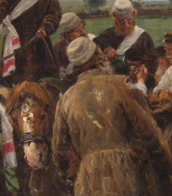

Dmitry Mikhailovich Krasnopevtsev (Russian: Дмитрий Михайлович Краснопевцев) was a Soviet and Russian artist of the second half of the twentieth century. He is known as a painter and graphic artist, a representative of "unofficial art" and the so-called Second Russian avant-garde.
Dmitry Krasnopevtsev chose as his main genre "metaphysical still lifes" approaching surrealism, often depicting ceramics, dried plants and shells in melancholy colors. These works developed Baroque motifs of the frailty and unreality of the world. Although for a long time his works were little exhibited in his homeland, they found admirers in other countries such as Austria, Germany, France, Japan, and the United States.


Dmitry Mikhailovich Krasnopevtsev (Russian: Дмитрий Михайлович Краснопевцев) was a Soviet and Russian artist of the second half of the twentieth century. He is known as a painter and graphic artist, a representative of "unofficial art" and the so-called Second Russian avant-garde.
Dmitry Krasnopevtsev chose as his main genre "metaphysical still lifes" approaching surrealism, often depicting ceramics, dried plants and shells in melancholy colors. These works developed Baroque motifs of the frailty and unreality of the world. Although for a long time his works were little exhibited in his homeland, they found admirers in other countries such as Austria, Germany, France, Japan, and the United States.


Dmitry Mikhailovich Krasnopevtsev (Russian: Дмитрий Михайлович Краснопевцев) was a Soviet and Russian artist of the second half of the twentieth century. He is known as a painter and graphic artist, a representative of "unofficial art" and the so-called Second Russian avant-garde.
Dmitry Krasnopevtsev chose as his main genre "metaphysical still lifes" approaching surrealism, often depicting ceramics, dried plants and shells in melancholy colors. These works developed Baroque motifs of the frailty and unreality of the world. Although for a long time his works were little exhibited in his homeland, they found admirers in other countries such as Austria, Germany, France, Japan, and the United States.


Dmitry Mikhailovich Krasnopevtsev (Russian: Дмитрий Михайлович Краснопевцев) was a Soviet and Russian artist of the second half of the twentieth century. He is known as a painter and graphic artist, a representative of "unofficial art" and the so-called Second Russian avant-garde.
Dmitry Krasnopevtsev chose as his main genre "metaphysical still lifes" approaching surrealism, often depicting ceramics, dried plants and shells in melancholy colors. These works developed Baroque motifs of the frailty and unreality of the world. Although for a long time his works were little exhibited in his homeland, they found admirers in other countries such as Austria, Germany, France, Japan, and the United States.
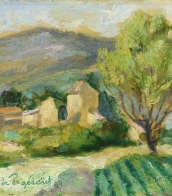

Dmitry Mikhailovich Krasnopevtsev (Russian: Дмитрий Михайлович Краснопевцев) was a Soviet and Russian artist of the second half of the twentieth century. He is known as a painter and graphic artist, a representative of "unofficial art" and the so-called Second Russian avant-garde.
Dmitry Krasnopevtsev chose as his main genre "metaphysical still lifes" approaching surrealism, often depicting ceramics, dried plants and shells in melancholy colors. These works developed Baroque motifs of the frailty and unreality of the world. Although for a long time his works were little exhibited in his homeland, they found admirers in other countries such as Austria, Germany, France, Japan, and the United States.
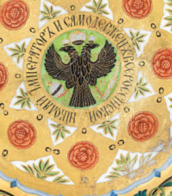

Dmitry Mikhailovich Krasnopevtsev (Russian: Дмитрий Михайлович Краснопевцев) was a Soviet and Russian artist of the second half of the twentieth century. He is known as a painter and graphic artist, a representative of "unofficial art" and the so-called Second Russian avant-garde.
Dmitry Krasnopevtsev chose as his main genre "metaphysical still lifes" approaching surrealism, often depicting ceramics, dried plants and shells in melancholy colors. These works developed Baroque motifs of the frailty and unreality of the world. Although for a long time his works were little exhibited in his homeland, they found admirers in other countries such as Austria, Germany, France, Japan, and the United States.
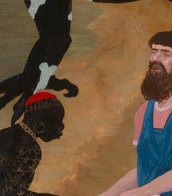

Dmitry Mikhailovich Krasnopevtsev (Russian: Дмитрий Михайлович Краснопевцев) was a Soviet and Russian artist of the second half of the twentieth century. He is known as a painter and graphic artist, a representative of "unofficial art" and the so-called Second Russian avant-garde.
Dmitry Krasnopevtsev chose as his main genre "metaphysical still lifes" approaching surrealism, often depicting ceramics, dried plants and shells in melancholy colors. These works developed Baroque motifs of the frailty and unreality of the world. Although for a long time his works were little exhibited in his homeland, they found admirers in other countries such as Austria, Germany, France, Japan, and the United States.


Dmitry Mikhailovich Krasnopevtsev (Russian: Дмитрий Михайлович Краснопевцев) was a Soviet and Russian artist of the second half of the twentieth century. He is known as a painter and graphic artist, a representative of "unofficial art" and the so-called Second Russian avant-garde.
Dmitry Krasnopevtsev chose as his main genre "metaphysical still lifes" approaching surrealism, often depicting ceramics, dried plants and shells in melancholy colors. These works developed Baroque motifs of the frailty and unreality of the world. Although for a long time his works were little exhibited in his homeland, they found admirers in other countries such as Austria, Germany, France, Japan, and the United States.

